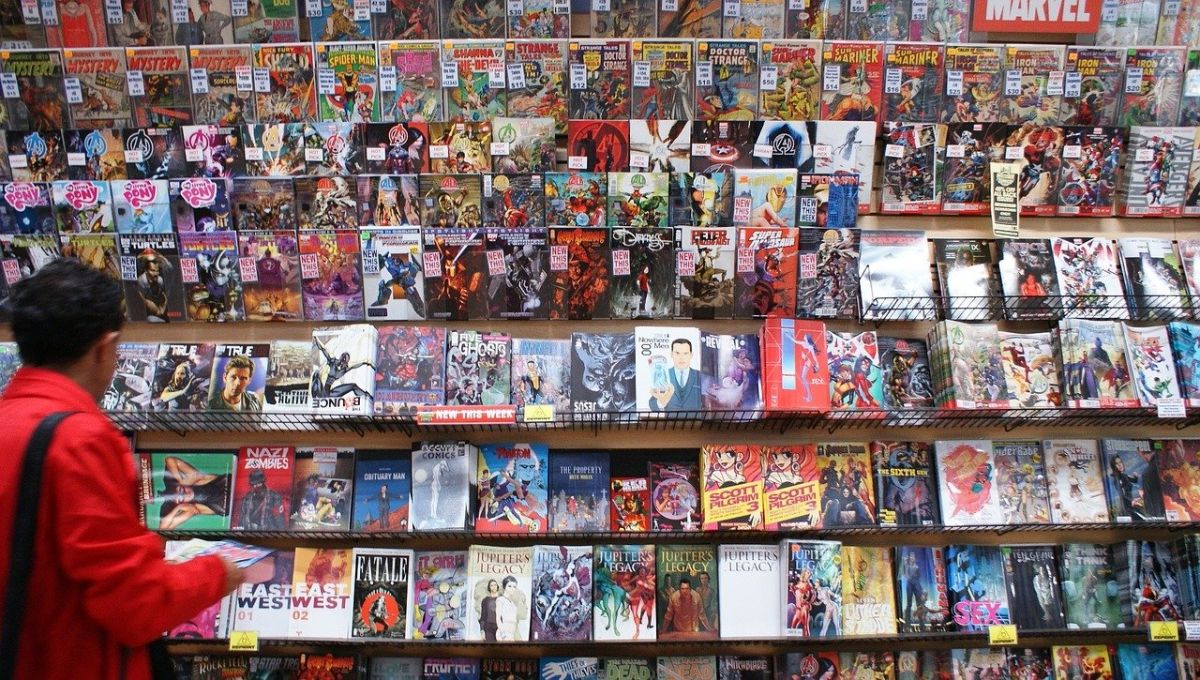Seeing the First South-Asian in the MCU

The Marvel Cinematic Universe (MCU) is arguably one of the biggest film franchises in the world. However, the MCU has lacked representation. It was only in 2018 that they had their first African-American led movie with Black Panther and in 2019 their first female led movie with Captain Marvel. All this while MCU has been around since 2008.
However, change could be possible. Phase 4, the latest phase of Marvel projects, set out a plan for MCU for the upcoming years. Over this phase, Marvel is trying to increase diversity in their projects. A movie released earlier this year, Shang-Chi, is led by Simu Liu, an ethnically Chinese actor and stunt man. They also showed Loki, a popular character, arguably as pansexual in his own web-series. Hence, Marvel has been making attempts to increase diversity in their cast and show a more realistic world.
Their latest movie, Eternals, further resonates with this idea. The movie showed the first same sex kiss in the MCU. It has actors from multiple different ethnicities, such as Salma Hayek (Mexican) and Don Lee (South Korean). Furthermore, they did not make any of these actors alter their accents to a more western accent.
Kumail Nanjiani, a Pakistani comedian and actor, played a major role in Eternals. This is the first time that a South-Asian actor has had a major role in a Hollywood superhero film franchise. Nanjiani played the character of Kingo, who has the power of shooting energy projections from his hands.
In the movie, similar to the comics, Kingo becomes a movie star in Bollywood. As a result Nanjiani had to do a Bollywood dance sequence, which in my opinion accurately represented South-Asian films. His character would be what most South-Asians would see in a typical Bollywood star. Being narcissistic and self-centred over their own craft, is something we South-Asians generally see in Bollywood. Furthermore, earlier in the movie, two of the lead characters also got married following Hindu rituals.
In my opinion, as a South-Asian international student and a fan of MCU, Kumail Nanjiani was an amazing inclusion. It is finally after 13 years that South-Asians have someone to look up to. Eternals made vague references to other Bollywood actors and movies. Having a film star family is something very known to happen in Bollywood. The movie Shadow Warrior 3 that Kingo was working on could be a reference to the Bollywood film Krish 3, with Kumail Nanjiani stating he was inspired by Hrithik Roshan, the protagonist of Krish 3.
Furthermore, the use of the word “Dishoom” during the fight sequence is something more embedded in South-Asian films. All these jokes are jokes that people accustomed to South-Asian Cinema will get. This makes it seem like the movie really cared for its South-Asian audience, and didn’t try using diversity as a mere tool.
However, this does not mean that the movie was free of criticism. The scene with the wedding is controversial, as it had two non-Hindus performing Hindu traditions. To some this was cultural appropriation, however I believe that this was more based on appreciation of Hindu culture, although it’s questionable whether this worked or not. I say this because it’s argued that Eternals was so poorly rated due to its diversity. Hence, while MCU made an effort, the poor audience reception may send it back to what it used to be.
Although, I do not believe that all is lost. Over the next few years there would be more people to look up to for the South-Asian community. Ms Marvel is a Pakistani-American superhero living in Jersey City, and she will be getting her own web-series on Disney+ with a big screen debut alongside Captain Marvel. This will be the first time a South-Asian would lead any MCU series. Hopefully it will have similar effects on audiences like Black Panther.
It does raise the question on why it took so long for a South-Asian character to be represented on the big screen. Could it be that there is not enough source material in the comics of South-Asian superheroes? – No. There have been cases where there is material to introduce a South-Asian, however it has just not been used. Marvel’s Inhumans did have South-Asians in their source material. However, they weren’t cast in the series. Instead there was a predominantly white cast, which to me seems like a micro-aggression.
However, the same can be said about Kumail Nanjiani’s Kingo. Kingo in the comics is supposed to go by the name Kingo Sunen, who while became a movie star, did so in Japan and not India. The character was also supposed to have samurai traits in his fighting. Hence, is it right that MCU represents one under-represented community by taking a character from another under-represented community? Could there be no other way in which they showed the first South-Asian on screen? While I did find Nanjiani’s character amazing and was left excited by him being in the movie, I feel conflicted on the fact that he was. It isn’t entirely fair that this is the way that we have been represented.







